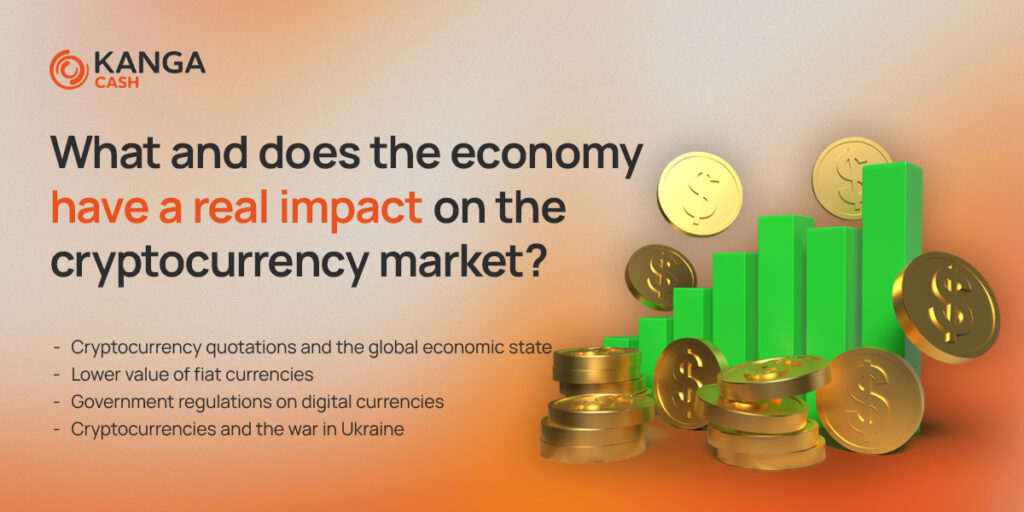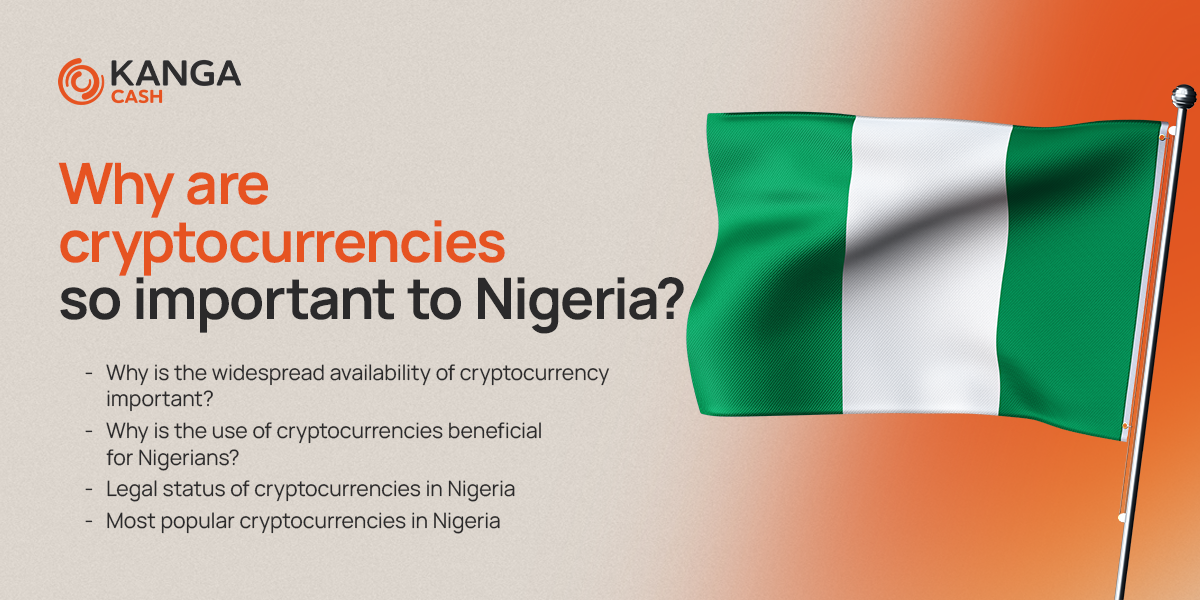What and does the economy have a real impact on the cryptocurrency market?

Immediately answering the question in the title, at least partially: yes, the economies of countries where the use of crypto is allowed affect the digital currency market. All because of the characteristics of the cryptocurrencies themselves. They have a globalized and decentralized nature and are therefore, for lack of a better word, vulnerable to macro and microeconomic events taking place almost all over the world.
Now, how does the economy affect cryptocurrencies? You will learn about it later in the article. Enjoy reading!
Cryptocurrency quotations and the global economic state
The price of most financial assets depends on the condition of the global economy. It is no different in the case of cryptocurrencies. In the era of financial prosperity, people have more capital, and some of it is more likely to be invested in assets. These then become more valuable on the market.
Currently, we are dealing with the opposite situation. The financial recession means that society, instead of accumulating finances in, for example, bitcoin or ethereum, spends them on everyday consumption, which becomes more and more expensive as inflation increases.
Lower value of fiat currencies
The currency issued by the government (such as the zloty in Poland) is in most countries in the world a measure of the value of goods and services. When a national currency depreciates due to inflation, it takes “more” to make a purchase. For this reason, having an inflationary currency reduces the purchasing power of the consumer.
It is true that with any fiat currency there is a risk of its value decreasing. Nevertheless, the scale of the reduction depends on the country itself and the period. A key element in the occurrence of inflation is a significant increase in the supply of currency.
Why, in this context, cryptocurrencies can be a kind of remedy for more difficult times? Because the supply indicator of e.g. bitcoin is known from the very beginning of its existence. Bitcoin has a harder than bronze limit of 21 million tokens. Thus, it is inflation-proof, because it cannot be “printed” just like that.
Its properties are especially found in countries with extremely high levels of inflation, such as Turkey and Nigeria. Citizens of those countries, due to the lack of faith in their currencies (we are talking about the lira and naira), from the beginning of 2021 they began to use bitcoin more often in everyday life. Thus, they gave a signal for bitcoin to become part of their economy.
Government regulations on digital currencies
There is no denying that the value of cryptocurrencies themselves is also directly affected by government regulations. The nature of digital currencies makes it impossible for the state to take full control over them, but the state, due to the implemented regulations, can both encourage and discourage citizens from using them on a daily basis.
Perversely, speaking of discouraging, this is the situation in the aforementioned Turkey and Nigeria. The local governments began to fear the moment when societies would finally abandon the fiat currencies functioning there, so they banned transactions using digital currencies. While this hasn’t stopped people from using crypto, it has certainly made it more difficult to use the technology.
On the other side of the barricade, we have countries actively supporting crypto adoption. Canada and Brazil, for example, by allowing Bitcoin ETFs to trade within their home public markets. The example of these countries is allegedly followed by the United States in the indefinite future.
Cryptocurrencies and the war in Ukraine
An important difference between the war in Ukraine and other armed conflicts in recent years is the participation of the Internet and related technologies. The events taking place beyond the eastern border of our country show that cyberwar has as much importance and implications as actions on the “physical” battlefield. Russia is constantly trying to attack the Ukrainian nation also in the digital space, e.g. by sowing confusion and chaos. Nevertheless, thanks to Thanks to the actions of the Deputy Prime Minister and Minister of Digital Transformation of Ukraine, Mykhailo Fedorov, this nation was prepared to fight in a computer reality.
However, it is worth looking at the whole situation in a slightly different context. The prevailing conflict, apart from threats, also gave opportunities when it comes to the use of blockchain and cryptocurrency technologies.
At the time of Russia’s attack, bitcoin was still on the crypto wave that started in 2020. Even with the decline to 40,000 USD, it was still higher than before 2021. Two months after the start of the war, bitcoin was worth “only” 20,000, but with the next month its price increased. Why?
It was digital currencies that provided the simplest way to send monetary assistance to Ukraine. All because crypto transfers can be made almost instantly, using only an internet connection. More importantly, they are safe from hacking by the Russian government. According to estimates, more than $212 million worth of cryptocurrencies have been donated so far. It is difficult to underestimate this fact in the context of the general increase in the value of cryptocurrencies.
Plus, the sanctions imposed on the aggressor made Russia also start a turn towards accepting bitcoin, even implementing it in its exports of natural resources. Moreover, economic restrictions imposed by the European Union and the United States have forced many Russian entities to convert rubles into cryptocurrencies.
Summary
Cryptocurrencies have become an important element of global economic structures. The increase in the popularity of digital currencies is directly proportional to the increase in their interaction with global economic events. It is in vain to expect that one economic decision will completely eliminate crypto from the game, but those taken by individual countries certainly translate into the attractiveness of using such bitcoin.
Thank you for reading! For those who have arrived here, we have prepared the “PRZESTROGA” code reducing the transaction in exchange offices by 0.25% (valid until June 15!).


